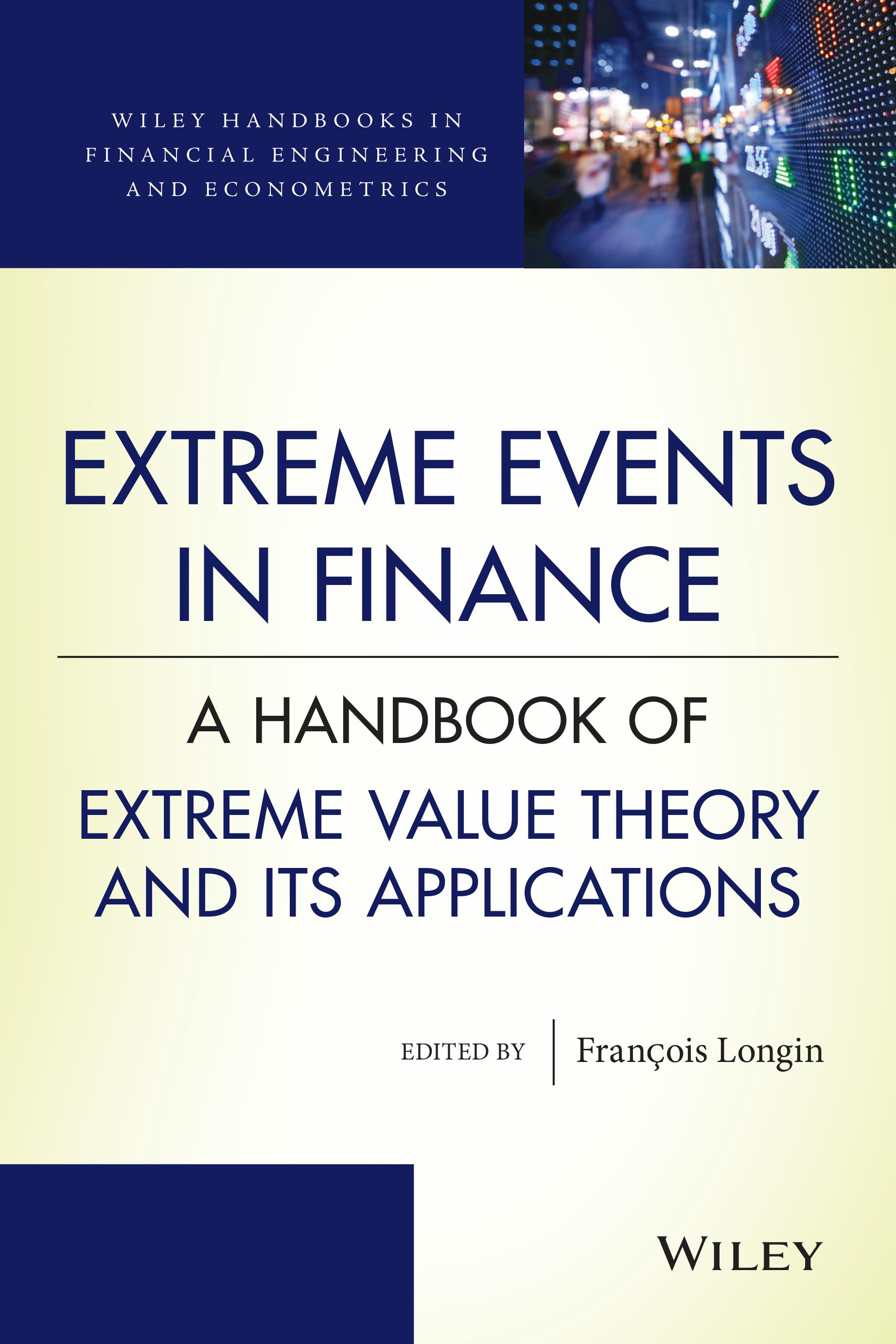Wiley handbook
|
||
|
Extreme events in finance Have you noticed that extreme events in finance tend to appear on a regular basis? The stock market crash of October 19th 1987 (a drop of 20% in asset prices on Wall Street!), the breakdown of the European Monetary System in September 1992, the turmoil in the bond market in February 1994, the internet bubble in 2000 and the recent crisis… Extreme events are a central issue in finance and particularly in risk management, asset management and financial regulation. The performance of a financial institution over a year is often the result of a few exceptional trading days as most of the other days contribute only marginally to the bottom line. Regulators are also interested in market conditions during a crisis because they are concerned with the protection of the financial system against catastrophic events which can be a source of systemic risk. As experienced during the latest crisis, problems in financial markets and the banking system tend to transmit to the real world impacting at the end the life of all economic actors. Over the last 30 years, extreme value theory (EVT) has proved to be an efficient tool to model extreme events in finance. In the financial world EVT has been used to improve risk management and asset management. Wiley handbook: a collective workThis book is a collective work: it gathers 25 contributions written by more than 40 contributors from all over the world. It is diverse in terms of contributors as it includes academics and practitioners from banks, fund management firms, insurance companies and central banks. This Wiley handbook is about extreme events in finance with an emphasis on extreme value theory. It gives all the necessary information (theoretical results and estimation methods) to apply the techniques to financial problems. It also provides useful information about financial problems where extremes matter from different points of view: academics who applied extreme value theory in finance (mainly risk management and portfolio management), and also practitioners who experienced extreme events in their working life. The objective of this book is to offer a comprehensive overview in terms of both methods and problems. A point of view from the extremesThe French mathematician, physicist and philosopher Henri Poincaré (1854-1912) once noted that “All the world believes it (the Laplace-Gauss or normal distribution) firmly, because the mathematicians imagine that it is a fact of observation and the observers that it is a theorem of mathematics.” It seems that more than a century later, the world, especially in finance, has not changed much as the Laplace-Gauss distribution is still considered as normal. While the normal distribution tends to underestimate the weight of extreme events in finance and then risks, an objective of this book is to show that extreme value theory with its strong theoretical results, large empirical evidence and new applications in risk management can be an alternative to the current paradigm of the normal distribution. The German mathematician Emil Gumbel (1891-1966), who was a pioneer in the application of extreme value theory to engineering problems, in particular to hydrological phenomena such as annual flood flows, once wrote: “It seems that the rivers know the theory. It only remains to convince engineers of the validity of this analysis.” Considering the world of finance, we can paraphrase Gumbel words by saying: It seems that financial markets know the theory. With all the contributors of this handbook, I hope that this collective Wiley handbook will help to go into this direction. |
||
 |
 |
François LonginESSEC Business School |




